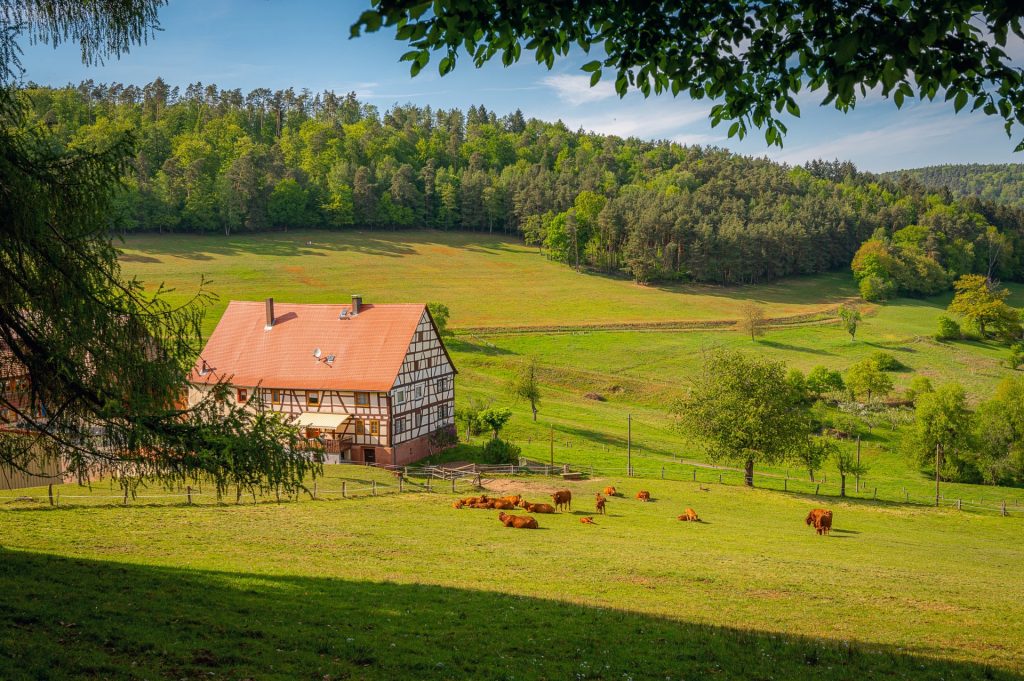
Land conservation easements for ranches in Littleton, Colorado, provide a pathway for ranch owners to safeguard the rich natural resources of their properties. These agreements ensure that the land’s ecological and scenic values remain intact for years to come. Beyond preserving the environment, ranch owners can also tap into potential tax incentives.
This article offers insights into the intricacies of such easements, shedding light on their requirements, advantages, and the lasting benefits they bring to both the land and the community.
What Is a Conservation Easement in Colorado?
A conservation easement in Colorado is a legal contract between a property owner and a land trust that permanently restricts the future development of a property to protect its natural, scenic, or agricultural values. While the landowner retains ownership, the easement ensures the land remains undeveloped. In return, landowners often receive tax benefits.
Requirements for Land Conservation Easements for Ranches in Littleton, CO
To be eligible for a land conservation easements in Littleton, CO, and to potentially receive federal and state tax benefits, ranch properties must meet one or more of the following criteria:
1. Natural Habitat for Wildlife
Ranches seeking land conservation easements in Littleton must feature a relatively undisturbed habitat conducive to the well-being of native fish, wildlife, and plants. By maintaining or restoring this natural balance, the property contributes to the overall health of the local ecosystem, promoting biodiversity and preserving essential ecological functions.
2. Preservation of Open Space
Eligible ranch properties include open spaces such as farmland or forest land. This involves maintaining these areas in their undeveloped state, serving vital roles like agricultural production, carbon sequestration, and providing habitats for diverse plant and animal species.
3. Historical and Cultural Importance
Ranches with historical significance, marked by certified historic structures or areas of cultural importance, qualify for land conservation easements. Preserving these elements not only safeguards the region’s history but also fosters a sense of continuity and identity within the community.
Tax Credit for Land Conservation Easements for Ranches in Littleton, CO
In Littleton, CO, ranch owners have the opportunity to protect their land conservation easements while also benefiting from potential state income tax credits. Here’s a breakdown of how ranch owners in Littleton can benefit:
Conservation Easement Benefits
By entering into a conservation easement, ranch owners can ensure that their lands remain protected against certain types of development. This helps in preserving the scenic beauty, agricultural viability, and natural habitats associated with ranch lands.
Tax Credit Eligibility
Ranch owners who donate a conservation easement may be eligible for a Colorado state income tax credit. This credit is a dollar-for-dollar reduction of the landowner’s state income tax liability.
Credit Percentage & Limits
The percentage of the donated value that can be claimed as a tax credit varies based on the year of donation. For instance:
✔For easements donated in 2021: 90% of the donated value can be credited, up to a maximum of $5 million per donation.
✔For easements donated between 2015 and 2020: The credit ranges from 75% of the first $100,000 of donated value to 50% of any remaining value, also capped at $5 million per donation.
Transferability
One unique feature of these tax credits is that they are transferable. This means ranch owners can sell their tax credit certificates if they don’t intend to use them, providing an additional financial benefit.
Application Process
Applying for a tax credit certificate requires a thorough assessment to ensure the donation meets the requirements of an eligible conservation contribution under the Internal Revenue Code. This includes obtaining a qualified appraisal by a recognized appraiser. While the issuance of a tax credit certificate minimizes the risk of disputes, the Department of Revenue retains the authority to scrutinize and potentially reject claims based on tax compliance issues.
Approval Authority
The responsibility for approving or denying tax credit certificate applications lies with the Director of the Division of Conservation and the Conservation Easement Oversight Commission. They have 120 days to complete their examination.
Frequently Asked Questions

Who is responsible for easement maintenance in Colorado?
The responsibility for easement maintenance in Colorado depends on the terms outlined in the easement agreement. Property owners may be tasked with maintaining the easement area, ensuring pathways remain clear. It is crucial to refer to the specific terms of the easement for clarity on maintenance obligations.
What is a land trust in Colorado?
A land trust in Colorado is a private, non-profit entity dedicated to conserving and protecting land through methods like conservation easements. Typically governed by a board of directors from the local community, the trust works to safeguard natural and cultural resources for future generations.
Why should I consider a conservation easement in Colorado?
Considering a conservation easement in Colorado protects vital natural resources like scenic views, agricultural land, and wildlife habitats indefinitely. This ensures lasting community benefits, such as recreational opportunities. Protecting your land through an easement preserves its ecological and scenic value, benefiting both present and future generations.
How long do conservation easements last?
Conservation easements typically last forever and are considered perpetual agreements. They run with the land, binding all future property owners. Only landowners who donate perpetual easements can avail of income and estate tax benefits.
Do I still own my land?
Yes, if you give a conservation easement, you still own your land. The easement only removes specific use rights you choose to donate. You retain the ability to own, sell, lease, mortgage, farm, and use the property as long as it aligns with the easement’s terms.
Conclusion
It is undeniable that land conservation easements for ranches in Littleton, Colorado, play a pivotal role in preserving the region’s natural beauty and heritage. Through these agreements, ranch owners secure both environmental protection and potential tax benefits, ensuring the legacy of their lands for generations to come.
If you have ranch or commercial real estate needs, contact us at 3D Real Estate. We understand the intricacies of the market and can guide you towards smart and profitable property decisions.




